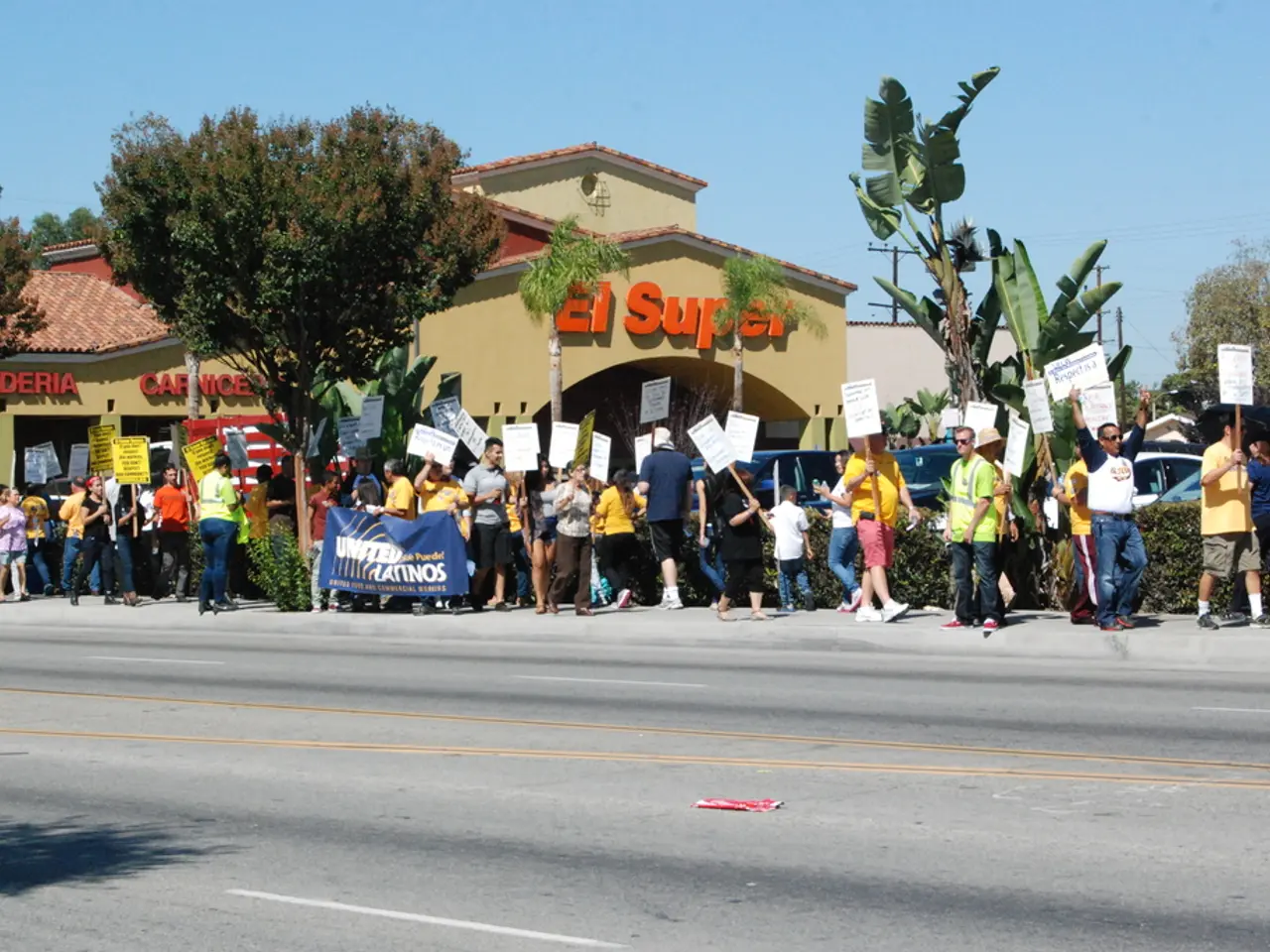Lowered Voting Age: 16-year-olds to Cast Votes Before the Upcoming General Election in the UK
The British government has unveiled a series of significant democratic reforms aimed at modernizing the political system and increasing participation across the nation. One of the key changes proposed is the lowering of the voting age to 16 and 17 for the next general election, following a landslide victory by the Labour Party in the 2024 general election.
The proposed reforms are designed to break down barriers to participation in UK democracy, according to Deputy Prime Minister Angela Rayner. Beyond lowering the voting age, the changes aim to help more people participate in elections and uphold democratic values.
The research indicates that lowering the voting age to 16 has had no impact on election outcomes in other countries. However, a study showed that 16-year-olds are more likely to vote than those first eligible at 18. The changes, if approved, would align voting rights across the UK with Scotland and Wales.
The reforms also include tougher new rules to prevent political interference and abuse of campaigners. To streamline voter identification and reduce printing costs, an introduction of a digital Voter Authority Certificate is being proposed. An increasingly automated voter registration system is also being implemented to simplify the registration process across government services.
In addition, loosening of Voter ID laws will allow UK-issued bank cards to be used as valid identification at polling stations, aiming to reduce the number of people unable to vote due to lack of accepted ID. The government is also cracking down on foreign political donations by closing loopholes and mandating checks on donations over £500.
Moreover, the reforms aim to raise standards for elected officials to boost public trust and accountability in politics. Enhanced safeguards on digital campaigning and the establishment of future-proof measures such as automated voter registration and digital voter identification are also part of the package to secure elections and uphold democratic values.
A recent poll indicates that only a quarter of British adults believe Prime Minister Keir Starmer will win the next election. However, the proposed reforms suggest a commitment to modernizing the political system and increasing engagement, especially among young people.
According to a YouGov study, age is a key dividing line in voting, with young voters more likely to vote Labour and older voters more likely to vote Conservative. The study also showed that 41% of 18 to 24-year-olds voted Labour, compared with 34% of 50 to 59-year-olds.
These reforms are collectively described as the most ambitious changes to UK democracy in decades, aiming to both increase engagement and protect the electoral process from abuse and interference. The article was edited by Kieran Burke.
References: [1] UK Government (2021). Lowering the Voting Age: A Step Towards Modernizing Democracy. Available at: https://www.gov.uk/government/publications/lowering-the-voting-age-a-step-towards-modernizing-democracy/uk-government-announces-plans-to-lower-the-voting-age-to-16-and-17
[2] House of Commons Library (2021). Lowering the Voting Age: An Analysis of the Evidence. Available at: https://commonslibrary.parliament.uk/research-briefings/cbp-9243/
[3] YouGov (2021). Age as a Key Dividing Line in Voting. Available at: https://yougov.co.uk/topics/politics/articles-reports/2021/05/25/age-key-dividing-line-voting
[4] Electoral Commission (2021). Tackling Foreign Political Donations: New Rules to Strengthen UK Democracy. Available at: https://www.electoralcommission.org.uk/i-am-a/media-centre/news-and-views/tackling-foreign-political-donations-new-rules-to-strengthen-uk-democracy
- The proposed democratic reforms by the British government, under Deputy Prime Minister Angela Rayner, aim to increase participation across the nation, particularly among young people, by lowering the voting age to 16 and 17 for the next general election.
- Beyond lowering the voting age, these reforms also include tougher rules to prevent political interference, an automated voter registration system, and a digital Voter Authority Certificate to streamline the registration process.
- These reforms, described as the most ambitious changes to UK democracy in decades, also aim to increase engagement, especially among young people, and protect the electoral process from abuse and interference, following a landslide Labour Party victory in the 2024 general election.






